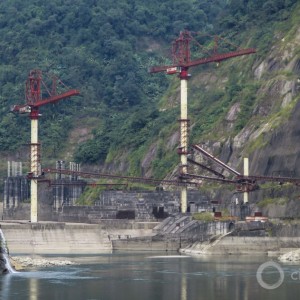The Stream, April 3: Bangladesh Earmarks Funds to Green Textile Industry
The Global Rundown |
Bangladesh is getting a big jolt of money to green up its textile industry. The United States has seen hundreds of cases of antibiotic-resistant diarrhea since last May. A Texas state court of appeals has sided with ‘first-in-line’ water rights.
“If it’s something that’s for the public, the public can pay for it.” – Brad Castleberry, water rights attorney, on a Texas court’s decision to uphold ‘first-in-line, first-in-time’ water policies to the detriment of cities and power generators even in the face of drought. Texas Tribune
By The Numbers |
$US 500 million – money earmarked by the Bangladesh Central Bank to make the country’s textile industry, the second largest in the world, more eco-friendly. Factories that wash, dye and finish textiles in Bangladesh extract roughly 1,500 billion liters of groundwater each year, and wastewater treatment is largely inadequate. Accepted best practice for textiles is to use 50 liters of water or less per kilogram of fabric, but Bangladesh uses 250 – 300 liters/kg. Fibre2Fashion
Science, Studies, And Reports |
An antibiotic-resistant strain of the diarrhea-causing Shigella Sonnei bacteria has been found actively circulating in the United States, the Centers for Disease Control reported yesterday. The infection, which is spread via stool (a.k.a. in conditions of poor sanitation and hygiene), is normally treated with an antibiotic called Cipro, but 243 cases of Cipro-resistant infections have been discovered since last May. Bloomberg Business
On The Radar |
A ruling by a state court of appeals has held up Texas’ longstanding ‘first-in-line, first-in-time policy on water rights. The court ruled that Texas cannot give preferential treatment to cities or power generators over “senior” water rights holders, i.e. farmers or corporations, even during a drought when the health and safety of the public is at stake. The ruling stemmed from an incident in the dry year of 2009 when Dow Chemical asserted its longstanding rights to Brazos River water and asked the Texas Commission on Environmental Quality to shutdown “junior” users. The TCEQ made exceptions for cities and power generators in order to protect public health and safety. Dow and the Texas Farm Bureau then sued the TCEQ. Texas Tribune
is both a scientist and a journalist, she holds an MS in Environmental Engineering from Michigan Technological University, and she brings proficiency in ESRI’s ArcGIS mapping software.






Leave a Reply
Want to join the discussion?Feel free to contribute!